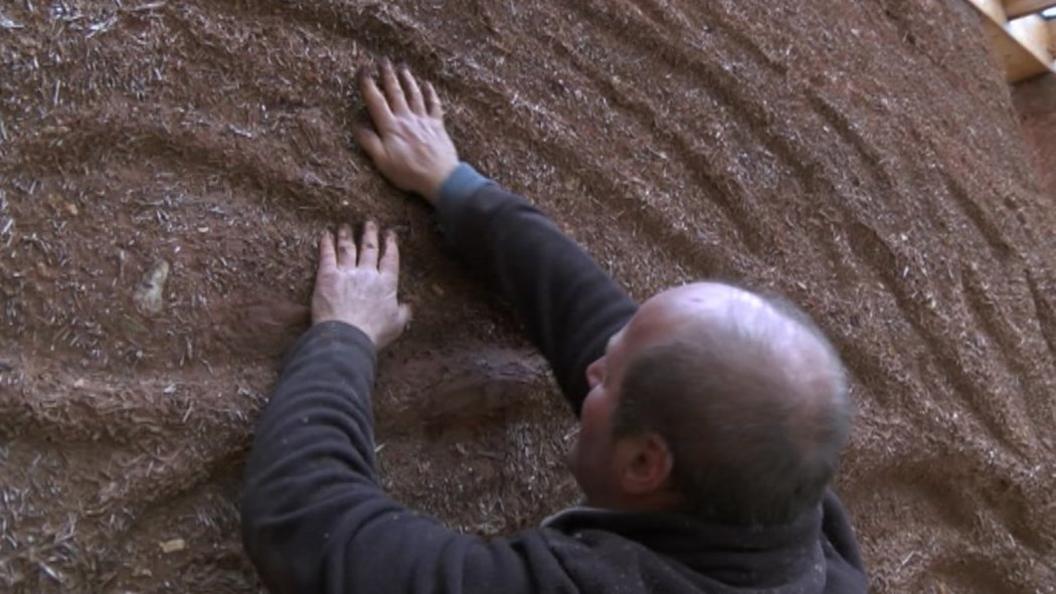Devon mud-hut woman 'allergic to modern life'
- Published
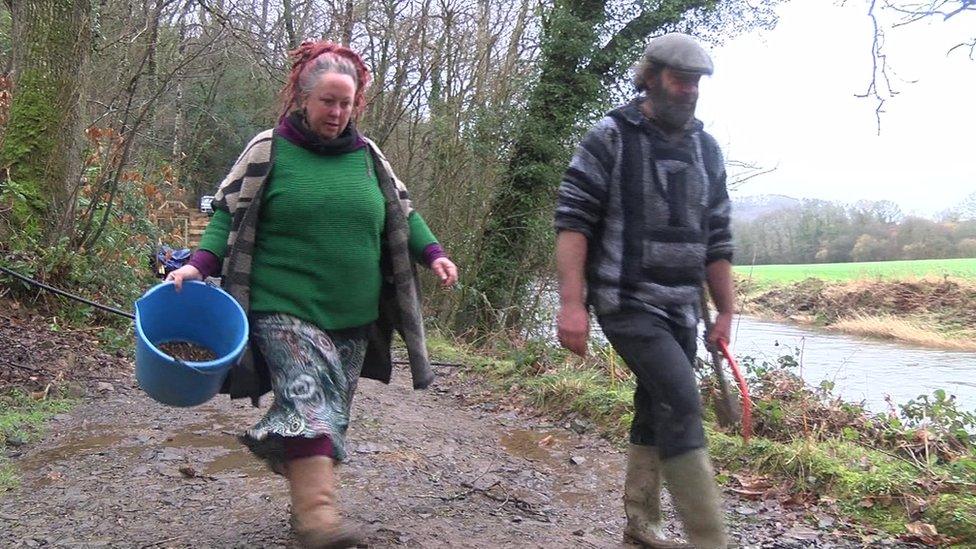
Kate Burrows says she started to recover after moving into the roundhouse
A woman is facing eviction from her mud-hut home which she says cures her "allergy to modern life".
Kate Burrows and partner Alan built their home in Devon of tree trunks knitted together and covered with mud and straw.
She says the move was prompted by a series of illnesses caused by living in her former rented home.
North Devon Council said they broke planning laws and have given them until December to move out.
More on the woman 'allergic to modern life', and other Devon news
Mrs Burrows appealed against an enforcement order, citing illness from a condition called Multiple Chemical Sensitivity (MCS), but this was rejected.
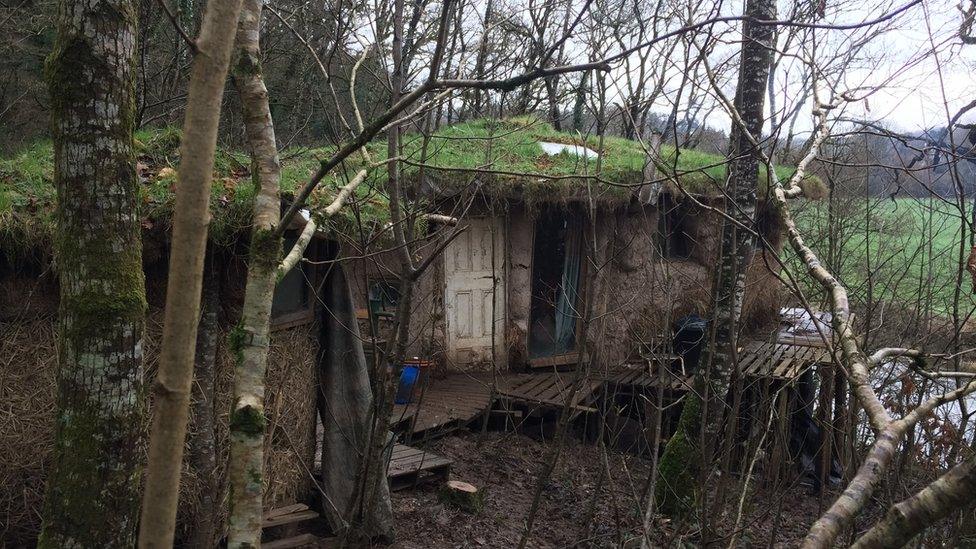
Power comes from solar panels on the turf-topped roof
Mrs Burrows, who has been in the house on their smallholding in the Tarka Valley near Chulmleigh for 19 months, said living in a modern home "was like having flu all the time".
"It was a collection of stuff in my system that literally poisoned me," she said.
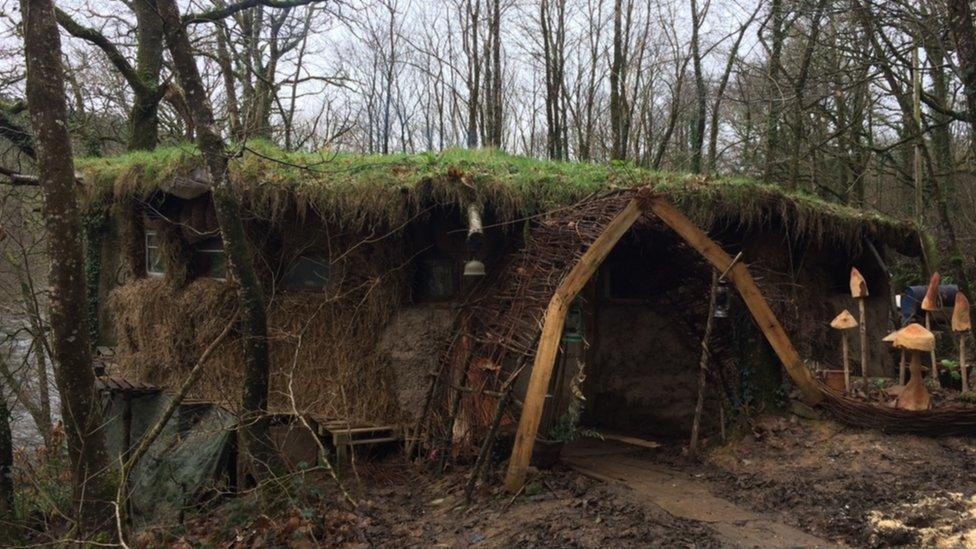
The couple spent six weeks building the hut on their smallholding in the Tarka Valley
"I think it was the water and the electricity and the wi-fi, the paint on the walls and my body couldn't handle it.
"I didn't realise how ill I was until we moved here and I started to recover."

What is Multiple Chemical Sensitivity (MCS)?
MCS is a chronic, physical illness affecting people of all ages and backgrounds. It causes sufferers to have allergic-type reactions to very low levels of chemicals in everyday products. Put simply, the immune and detoxification systems stop working properly and the body cannot process toxins efficiently.
Besides reacting to things like cleaning products, shampoo, perfumes and pesticides, many sufferers are also sensitive to food, medicines, moulds and electromagnetic fields.
Source: MCS-Aware

It took the couple six weeks to build the roundhouse which has an outside compost toilet, kitchen, living area and two bedrooms.
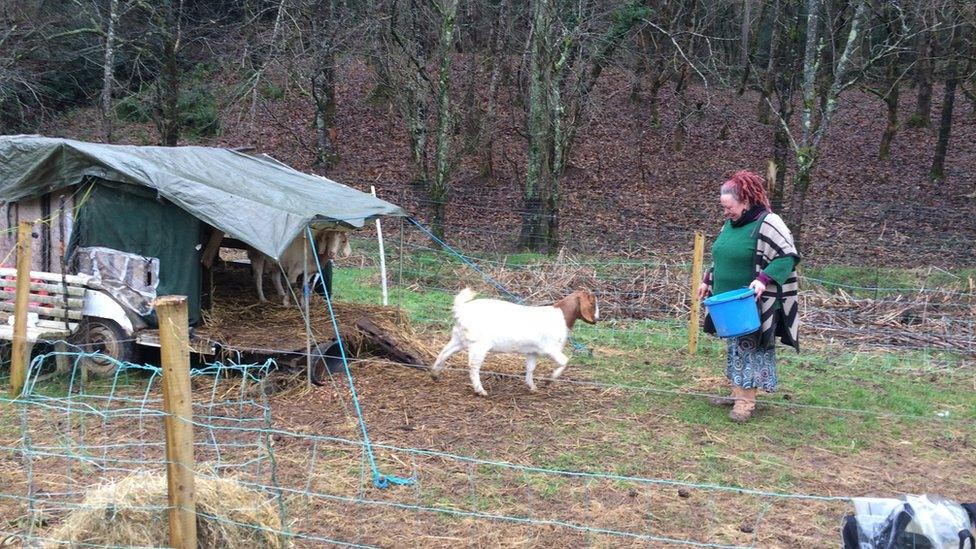
The couple keep chickens, goats and geese on the smallholding
The house is topped with tonnes of turf and the walls are lined with lime mortar. Alongside one wall is a bath supplied with hot water from a makeshift boiler.
Outside a hand pump brings water from the river for washing, solar panels on the roof provide power and the couple keep chickens, goats and geese.
"This is our nest, this is our everything, this is our art," said Mrs Burrows. "We have sculpted it with our hands from the soil.
"I can't go back to being ill like that, it fills me with absolute horror."
She is campaigning for a planning policies in England like the One Planet planning laws, external in Wales which can allow largely self-sustaining homes like theirs.
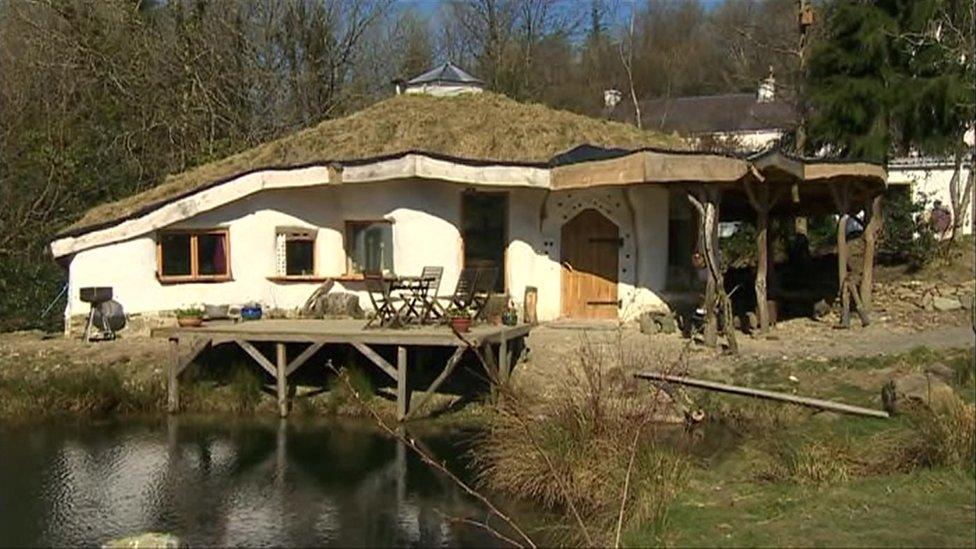
One Planet planning policy in Wales has allowed a number of largely self-sustaining homes including this so-called "Hobbit home" in Glandwr, near Crymych
"I think it's really important that people like are us are allowed to live sustainably on their own land without causing any damage," she said.
"This is normal life. We're collecting water, we're chopping wood, we're growing food.
"Isn't that what everyone has done throughout time?"
The National Institute for Health and Care Excellence calls MCS a "medically unexplained condition" but admits it can cause "severe functional impairment for afflicted individuals".

Analysis: Dr Andy Jones, lecturer in Environmental Sciences, on MCS
The causes of MCS are disputed in the medical profession. No-one is suggesting that people who suffer from it are putting it on. But it is difficult to show an association with chemicals.
We often find that they have other issues like stress and perhaps it's all tied in together. Often people suffering from it claim it is caused by modern chemicals but there are all sorts of chemicals in nature, from decomposition, fragrance from flower pollens and other natural compounds, but these do not appear to cause a reaction.

Charity MCS-Aware estimates that several thousand people in the UK have some type of MCS.
CEO Nicki Greenham said the bodies of sufferers did not process toxins in the same way as healthy people.
"Unfortunately we get a lot of people for whom living in an ordinary house, especially a new build house that has been decorated or furnished becomes a big problem," she said.
There is no "magical cure" but "over time it is possible to recover by lowering the burden the body has to deal with".
North Devon Council planning officer Graham Townsend said it was "clearly not in the public interest to have houses and other structures springing up across the countryside without any permissions being obtained".
A Department for Communities and Local Government spokesperson said planning policy "already promotes good design and encourages low carbon development" and building regulations "set high standards for energy efficiency".
- Published27 July 2016
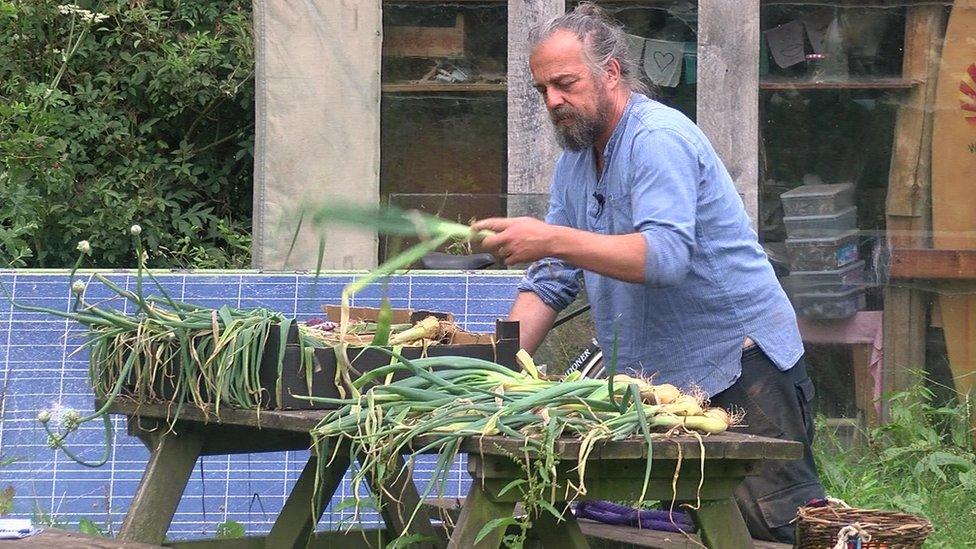
- Published14 July 2015
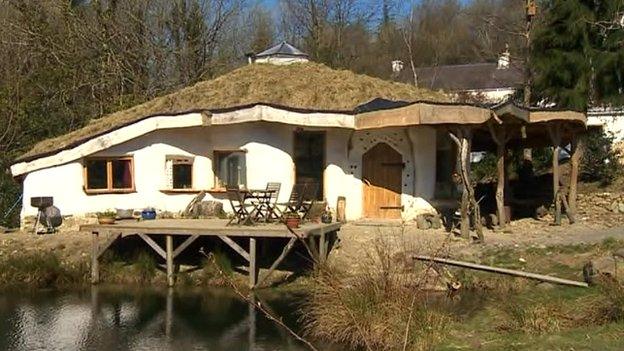
- Published23 July 2014
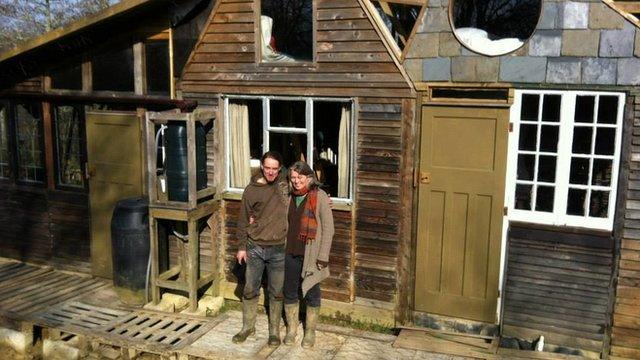
- Published27 February 2014
